
Jason Sterkenburg’s (CLS) MS thesis proposal, “Physical, Cognitive and Emotional Distraction While Driving: A Comparative Analysis,” has been selected for inclusion in the Doctoral Colloquium at the sixth International AutomotiveUI Conference.

Jason Sterkenburg’s (CLS) MS thesis proposal, “Physical, Cognitive and Emotional Distraction While Driving: A Comparative Analysis,” has been selected for inclusion in the Doctoral Colloquium at the sixth International AutomotiveUI Conference.
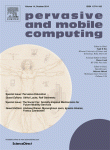
Assistant professor, Myounghoon “Philart” Jeon (CLS) and international collaborators edited a journal special issue, “The Social Car: Socially Inspired Mechanisms for Future Mobility Services” in the journal Pervasive and Mobile Computing, vol. 14.
DOI: 10.1016/j.pmcj.2014.08.007

Assistant professor, Myounghoon “Philart” Jeon (CLS) traveled to Seattle’s University of Washington, where he co-organized a full day workshop on “Social, Natural, and Peripheral Interactions: Together and Separate” at the 6th International AutomotiveUI Conference. Jeon and his students also presented some of their recent research projects.
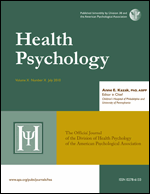
Edward Cokely (CLS) has published a new article in the journal “Health Psychology” titled Factors Predicting Surgeons’ Preferred and Actual Roles in Interactions With Their Patients.
doi: 10.1037/hea0000061
Assistant Professor Adam Feltz and Associate Professor Edward Cokely (CLS) coauthored the paper “Personality and Philosophical Bias,” which will appear in “Blackwell Companions to Experimental Philosophy.”
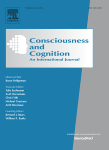 Assistant Professor Adam Feltz (CLS) coauthored the paper “Moral Responsibility and Free Will: A Meta-Analysis,” which has been accepted for publication in Consciousness and Cognition.
Assistant Professor Adam Feltz (CLS) coauthored the paper “Moral Responsibility and Free Will: A Meta-Analysis,” which has been accepted for publication in Consciousness and Cognition.
Myounghoon Jeon (CLS), “CAREER: In-Vehicle Detection and Mitigation Using Interactive Sonification,” National Science Foundation
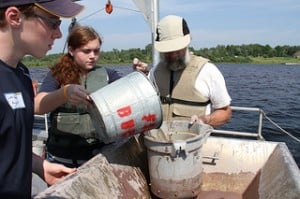 The Albany (N.Y.) Times Union published a story about an educational cruise led by Professor Noel Urban (CEE) to teach plant technicians from the Keweenaw Bay Indian Community Natural Resources Department about the impact on Torch Lake of mining and the stamp sands it left. The story, initially published by the Daily Mining Gazette in Houghton, was picked up by Associated Press wire service and made available to member media outlets all over the country.
The Albany (N.Y.) Times Union published a story about an educational cruise led by Professor Noel Urban (CEE) to teach plant technicians from the Keweenaw Bay Indian Community Natural Resources Department about the impact on Torch Lake of mining and the stamp sands it left. The story, initially published by the Daily Mining Gazette in Houghton, was picked up by Associated Press wire service and made available to member media outlets all over the country.
Students observe effects of mining on Torch Lake
Nothing can live in the stamp sands that cover the bottom of Torch Lake, Michigan Technological University Environmental Engineering Professor Noel Urban told a group of young plant technicians from the Keweenaw Bay Indian Community Natural Resources Department.
The KBIC technicians got a chance to see some of those efforts as well, exploring and doing experiments at the Amheek Stamp Mill, also known as the Tamarack City Stamp Mill, where the Environmental Protection Agency had just finished an asbestos cleanup the day before, as well as the Torch Lake shoreline and the Lake Linden Campground.
“We have them collecting scientific data, like do we have good (plant) ground coverage” in areas above stamp sand beaches that have had remediation,” said Joan Chadde, education program coordinator at Michigan Tech.
Read more at AP and the Daily Mining Gazette, by Dan Roblee.
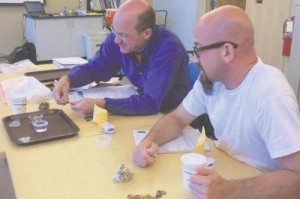 The Fort Wayne (Ind.) Journal Gazette published an article about two brothers, both high school science teachers, who participated in Michigan Tech’s Great Lakes Watershed Investigations Teacher Institute this summer.
The Fort Wayne (Ind.) Journal Gazette published an article about two brothers, both high school science teachers, who participated in Michigan Tech’s Great Lakes Watershed Investigations Teacher Institute this summer.
Local teachers travel to study lakes
A local high school teacher and his brother were among the group of educators who took part in a weeklong summer program at the Michigan Technological University as part of the Great Lakes Teacher Institute.
“The classes are really cool because the teachers meet and work with professors and researchers, experts who are very passionate about their fields of study or their research, professionals who really enjoy connecting with teachers from the K-12 level.”